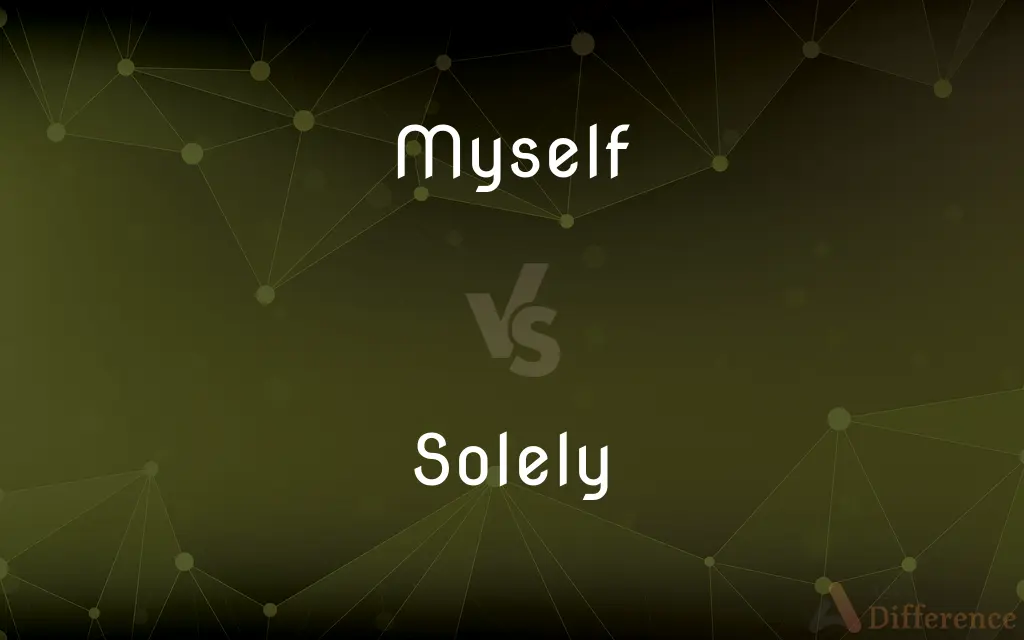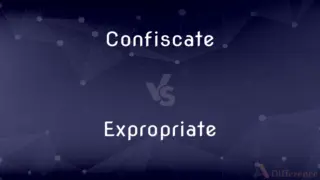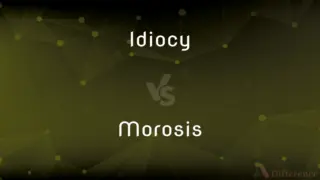Myself vs. Solely — What's the Difference?

Difference Between Myself and Solely
ADVERTISEMENT
Compare with Definitions
Myself
Used by a speaker to refer to himself or herself as the object of a verb or preposition when he or she is the subject of the clause
I strolled around, muttering to myself
I hurt myself by accident
Solely
Alone; singly
Solely responsible.
Myself
I or me personally (used to emphasize the speaker)
I myself am unsure how this problem should be handled
I wrote it myself
Solely
Entirely; exclusively
Did it solely for love.
Myself
Used by a speaker to refer to himself or herself; I
Myself presented to him a bronze sword
ADVERTISEMENT
Solely
Alone; exclusively.
The new chef was solely responsible for attending the grill.
Myself
(reflexive pronoun) Me, as direct or indirect object the speaker as the object of a verb or preposition, when the speaker is also the subject.
I taught myself.
Solely
Singly; alone; only; without another; as, to rest a cause solely one argument; to rely solelyn one's own strength.
Myself
Personally, for my part; used in apposition to I, sometimes for simple emphasis and sometimes with implicit exclusion of any others performing the activity described.
Solely
Without any others being included or involved;
Was entirely to blame
A school devoted entirely to the needs of problem children
He works for Mr. Smith exclusively
Did it solely for money
The burden of proof rests on the prosecution alone
A privilege granted only to him
Myself
In my normal state of body or mind.
Myself
Me (as the object of a verb or preposition).
I feel like myself.
Myself
(archaic) I (as the subject of a verb).
Myself
My name is...
Myself John.
Myself
I or me in person; - used for emphasis, my own self or person; as I myself will do it; I have done it myself; - used also instead of me, as the object of the first person of a reflexive verb, without emphasis; as, I will defend myself.
Share Your Discovery

Previous Comparison
Confiscate vs. Expropriate
Next Comparison
Idiocy vs. Morosis














































